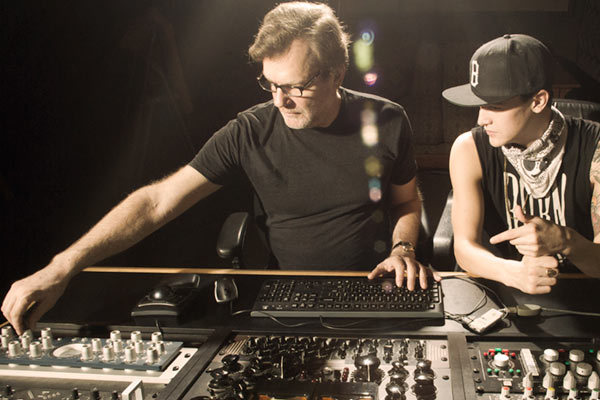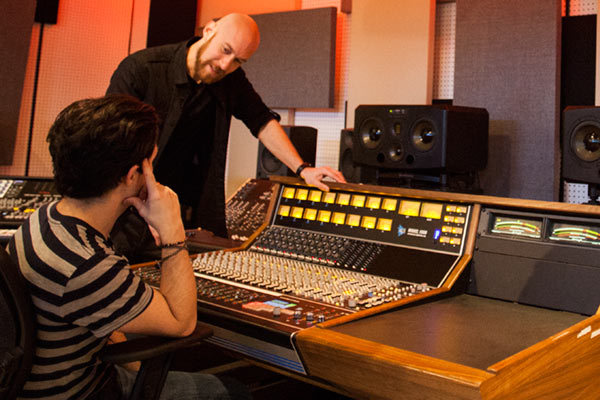One-on-One Mentoring
LEARNING FROM A MENTOR, NOT A TEACHER
One of the most important traits of the Recording Radio Film Connection & CASA Schools is the way we teach our students. At RRFC, you’re not simply one face in a classroom of dozens, competing for the attention of your instructor. You’re the only one in the class. That’s right: every RRFC student is paired with a mentor, and instruction happens one-on-one.
Who is Your Mentor?

Let's start by saying who your mentor is not. Your mentor is not a full-time instructor paid to teach a classroom full of students several times a day. Your mentor is not a lifetime academic, or someone who perhaps used to work in the industry. Your mentor is an actual working professional in the field, someone who understands how the business works beyond the textbooks. Your mentor is someone who knows the ins and outs of the industry right now, and is currently making a living doing what you want to do. Your mentor is an actively working music producer, audio engineer, filmmaker, broadcasting professional, or chef, who is ready and willing to teach you in private, one-on-one sessions.
Why is One-on-One Training Important?

At RRFC we believe in the power of one-on-one mentoring to prepare individuals for careers in recording, radio, film and culinary. Prior to the advent of formal schools, people would learn these skills by training with a mentor who would take them under their wing and teach them the ins and outs of their respective industry. Even today, successful people who work in these industries often point to a key mentor who helped them navigate their course towards success, whether or not they went to school.
While not every profession requires this kind of personal instruction, there are several key ways in which RRFC's mentor-extern training gives you an advantage:
- Learn at your own pace. In a class, the teacher sets the pace, and it's the students' job to try and keep up. Since not everyone learns at the same speed, this poses a problem for some. With one-on-one instruction, the student sets the pace.
- Learn more quickly. Even though you set the pace, you'll be surprised at how quickly you can learn when you aren't competing with a bunch of other students in the room.
- Get your questions answered. In a classroom setting, it's often far too easy to miss important points because the teacher doesn't have time to address every question. When you have the mentor/teacher all to yourself, you can ask any questions you like—as often as you like. Your mentor is there to make sure you learn effectively and that you understand each point before moving on to the next.
- Learn the tricks of the trade. Every successful professional has certain techniques and tricks and secrets that aren't taught in the textbooks. Watch and listen, and you too can learn the tricks of the trade.
- Learn industry practices. The Los Angeles Abstract Recording Studio’s V.P. of Operations and producer/engineer Doug Boulware tells us the wrong kind of education can result in newcomers having “little to no knowledge of the right way to wrap up cables or setup a mic. If I hired graduates from those programs, I’d have to spend considerable time retraining them myself. Time is money. Having to spend time teaching someone the right way to do things can be a considerable expense.†With one-on-one training from a working pro, you learn how things are done in your industry right now.
A quality education which enables you to train one-on-one with an industry professional is possible. Learn through personalized instruction, quickly and efficiently, and get started on building your career in months, not years.
At RRFC, we don't just want you to succeed in your studies—we want you to succeed in your career, after you graduate. By training you one-one-one with a mentor and receiving curriculum-backed lessons, you can be well on your way to succeeding at both!








